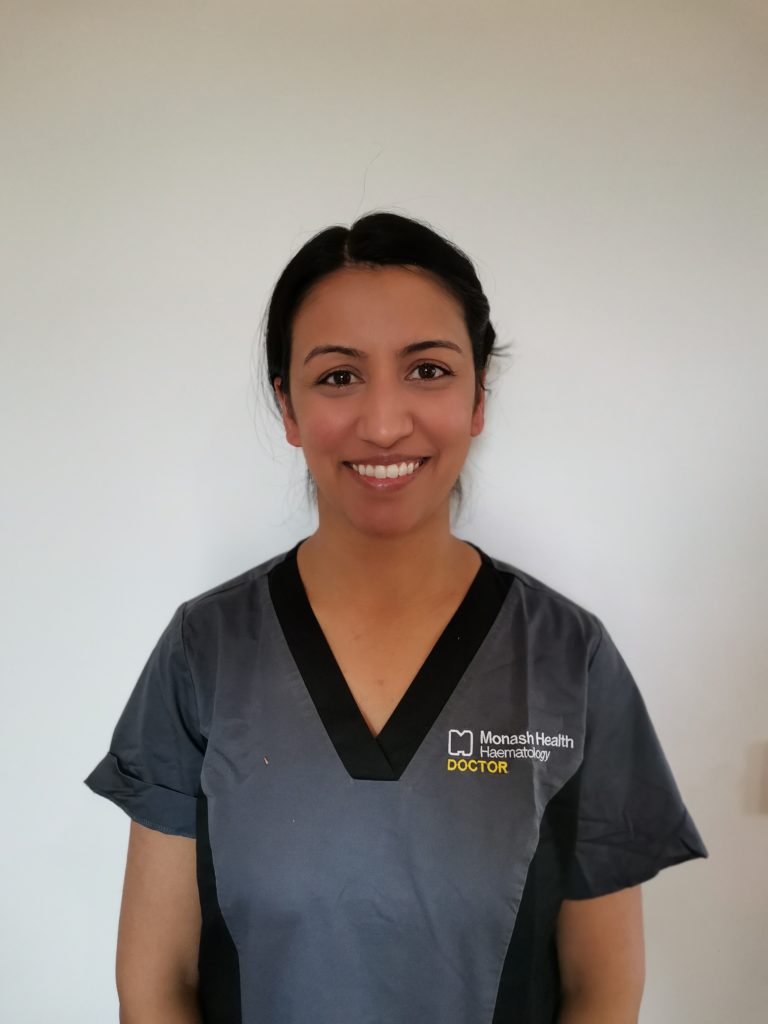Dr Jasmine Singh: Clonal haematopoiesis of indeterminate potential (CHIP) – what does it mean?
People with blood cancers can have genetic mutations in their blood or bone marrow cells. These mutations can also be found in individuals without cancer and are referred to as CHIP (or Clonal Haematopoiesis of Indeterminate Potential).
CHIP is more common with age and increases the risk of developing blood cancer but also other conditions like heart disease.
Right now, the risk factors that drive progression of CHIP into blood cancer and other conditions are largely unknown, and we don’t yet know how to best manage people with CHIP or predict/modify their individual risk.
Enter Dr Jasmine Singh.
Jasmine’s PhD will utilise samples collected under the “ASPREE” study. ASPREE is the largest Australia clinical trial of healthy elderly participants (more than 10,000 participants) taking aspirin. Samples were taken from participants at the start of the study and again 3 years. Clinical data has also been collected during and beyond the 3 years of the trial with ongoing follow-up of these individuals to see if any of them go on to develop blood or other cancers beyond the completion of this trial. Dr Singh’s PhD will measure the presence of CHIP in the trial participants comparing the samples collected at the start of the study to samples collected from the same individuals after 3 years.
Jasmine will investigate how common CHIP mutations are, risk factors that lead to disease, and whether aspirin affects outcomes including expansion of CHIP clones, blood cancers and also heart disease.
About Jasmine
Originally from Perth, Jasmine has completed her advanced haematology training in Victoria and is now working as a haematologist at Monash Health and Australian Clinical Labs. She has combined her passion for haematology and genetics in her PhD exploring clonal haematopoiesis of indeterminate potential (CHIP) within the ASPirin in Reducing Events in the Elderly (ASPREE) cohort. The ASPREE-CHIP study is being led by A/Prof Zoe McQuilten and Prof Erica Wood of TRU, and Prof David Curtis of the Australian Centre for Blood Diseases at Monash University, in collaboration with the ASPREE Investigators.
